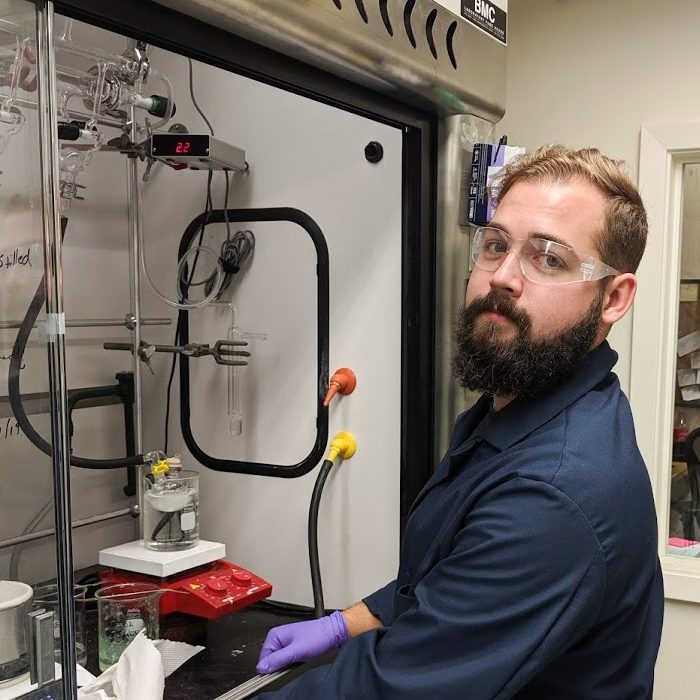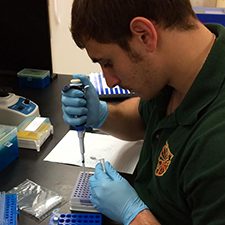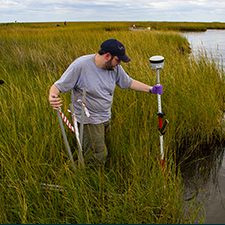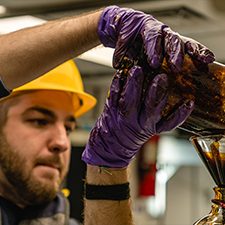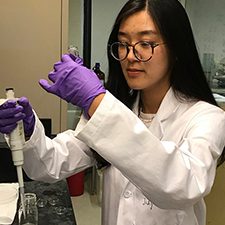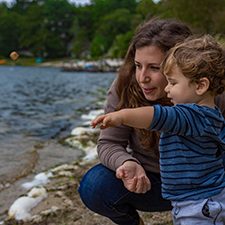The GoMRI Scholars Program recognizes outstanding graduate students and the vital research they contribute to improve understanding about the damage, response, and recovery following the Deepwater Horizon oil spill. The Scholars Program honors and builds community for these next generation of ocean science professionals.
These students serve as essential team members for much of the research underway and bring creativity, curiosity, and energy to the GoMRI scientific program. They represent the successful manifestation of the second GoMRI Legacy Goals, building scientific and intellectual capacity for response and mitigation strategies for future oil spill events.
Candidates for this program must be graduate students who have participated in a GoMRI-funded project for at least one year, whose work is primarily funded by GoMRI, and who are working on a dissertation or thesis based on GoMRI-funded science. On a semi-annual basis, the lead Principal Investigators of GoMRI-funded projects nominate students who meet these criteria.
Following confirmation, each scholar will receive a letter of congratulations declaring the title GoMRI Scholar along with a certificate from Dr. Rita Colwell, GoMRI Research Board Chair. GoMRI will collect information about these scholars and their careers and accomplishments for longitudinal studies and program impacts.
Below are GoMRI Scholars Highlight Stories that have been featured on the web site. For a complete list of scholars, click on the ‘People’ tab for any funded projects to view the list of GoMRI Scholars with affiliation for that project.
Following the Deepwater Horizon oil spill, resource managers recognized the need for species-specific fish risk assessments to help identify which organisms and habitats would be most affected.
Because oil and water don’t mix easily, oil droplets in the ocean environment tend to aggregate into larger masses, which hinders microbial degradation.
When a marine oil spill occurs, it is vital to quickly determine where and when to dispatch response operations.
Following Deepwater Horizon, there was concern about how the oil spill might affect marine life. Since then, scientists have learned more about how polycyclic aromatic hydrocarbons (PAHs) affect marine organisms, especially commercially and recreationally important fisheries.
The Deepwater Horizon incident affected more than 1,700 km of Gulf of Mexico coastline. Chemical compounds from the oil spill posed a risk to human health, especially children whose play behaviors often bring them in direct contact with sand and water.
Shearing typically occurs along coastal marshes when strong storms rip away the plants at the marsh edge. Because oiled shoreline sediment is in a weakened state and less able to securely hold plants in place, some Louisiana marshes that were heavily oiled following Deepwater Horizon are experiencing more shearing than usual.
Scientists can use radium isotopes, which are released from oil in seawater and decay at a specific rate, as geochemical tracers to investigate marine processes involved in oil degradation.
Grad Student Deng Investigates How Marine Microbes Move When Oil is Present – SEPTEMBER 19, 2019 Oil-water interfaces, such as those formed by marine oil spills or natural ocean oil seeps, are teeming with bacterial activity. Some bacterial species in those interfaces form biofilms that help break up oil, which enhances biodegradation. The interfaces themselves…
Predicting where oil will go can be one of the most challenging aspects of marine oil spill response.
Meiofauna are microscopic marine organisms that live between grains of sand in ocean, coastal, river, and stream sediments and provide important services such as recycling organic material in the sediment that contribute to healthy marine ecosystems.


